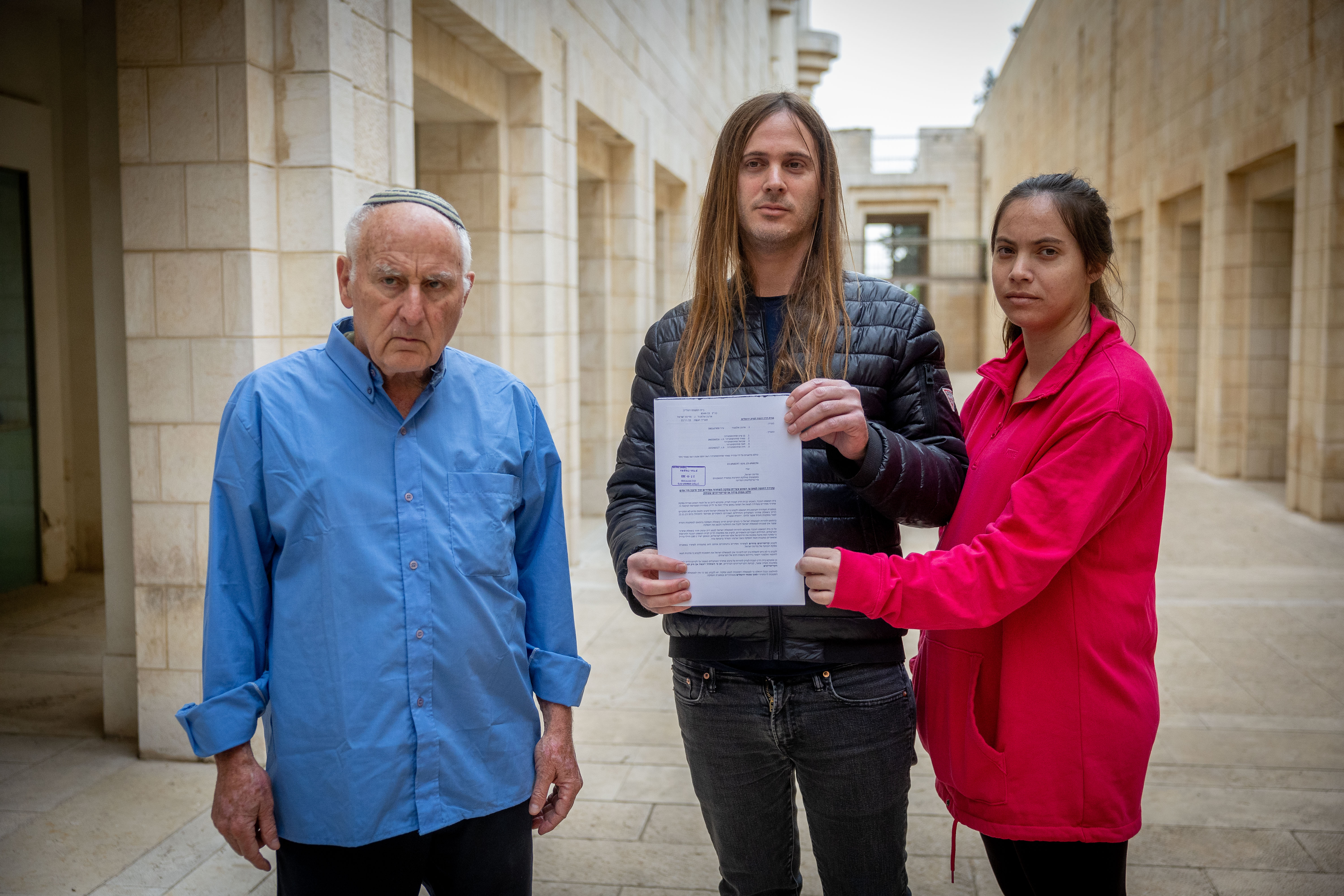Does the High Court of Justice Intervene in Decisions to Release Prisoners?
Appeals to the HCJ to intervene in decisions relating to the release of prisoners are fairly common, but the Court has repeatedly rejected these appeals, noting that on issues of national defense and diplomacy, the bounds for judicial oversight are particularly narrow.

Meir Indor, CEO of the Almagor Terror Victims Association hands in a petition against the deal which will release150 Palestinian prisoners. Photo by Yonatan Sindel/Flash90
It is a fairly common procedure for appeals to be lodged with Israel’s High Court of Justice immediately after a decision has been taken to release prisoners, whether as a diplomatic gesture or as part of efforts to secure the return of hostages or prisoners of war. These petitions may be filed by bereaved families who lost their loved ones in terror attacks or by organizations representing them, or alternatively, by regular citizens who oppose the deal in question.
Such petitions usually ask the High Court of Justice to revoke the decision or to alter its terms, with one of the arguments presented being that the release of terrorists endangers public safety and encourages further kidnappings. Over the years, the High Court of Justice has repeatedly rejected these appeals, including in the cases of the Goldwasser-Regev deal, the Shalit deal, and many others.
The Court has always noted that regarding such matters of national defense and diplomatic relations, the government has an extremely broad scope for exercising its judgment, and accordingly, the bounds for judicial oversight are particularly narrow, leaving it reserved for exceptional cases only. According to this approach, such decisions are very much under the government’s authority, as it has all the relevant data to make them and bears the responsibility to do so. The High Court of Justice also emphasizes that these decisions involve defense and foreign policy considerations alongside ethical and moral considerations, and thus the government’s scope for judgement is extremely broad.
The current proposed deal with Hamas is certainly unusual, in terms of its scale and its circumstances. At the same time, as long as the decision was made with the proper authority using proper procedures, it can be cautiously assumed that the High Court of Justice will again reject any petitions submitted to it—and very quickly, so as not to torpedo the deal as approved by the government. The assumption that the Court will not intervene is only reinforced by expressions of support for the deal from senior figures in the defense establishment.
It is also important to note that in previous appeals of this kind, the main grounds on which the appellants sought to have the decision revoked were those of reasonableness. Of course, the reasonableness doctrine is no longer one of the tools available to petitioners seeking to have government decisions overruled, due to the recent amendment to the law which revoked the application of the reasonableness doctrine in relation to government decisions.
